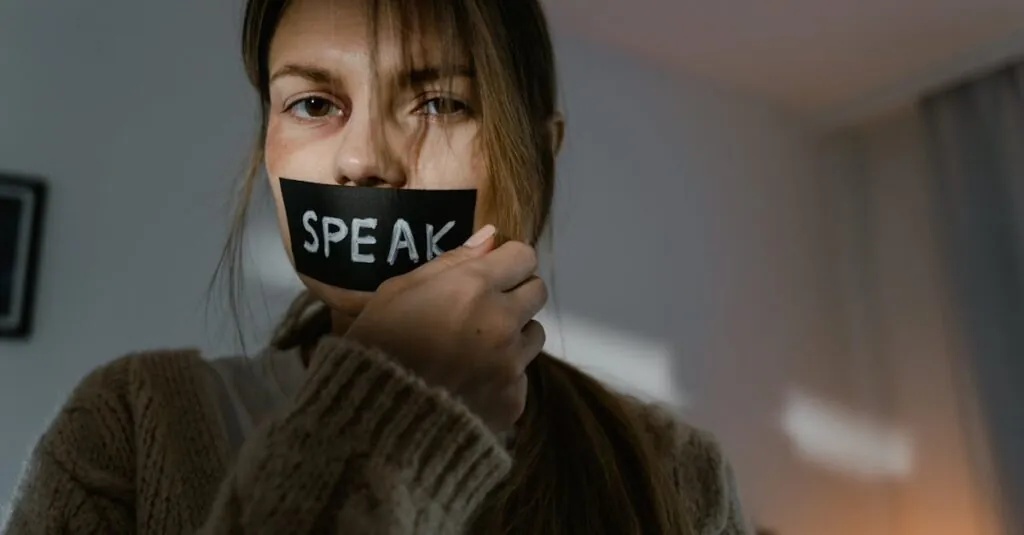In a world buzzing with opinions and social media hot takes, critical social reflections offer a refreshing pause for thought. They invite individuals to step back and scrutinize the whirlwind of ideas swirling around them. Instead of jumping on the latest trend, these reflections encourage deeper conversations about society, culture, and the human experience.
Imagine sipping your morning coffee while contemplating the quirks of modern life—it’s like a mental workout without the sweat. By engaging with critical social reflections, people can sharpen their perspectives and challenge the status quo. So, why not take a moment to explore what’s really happening beneath the surface? After all, it’s not just about scrolling through feeds; it’s about understanding the world in a way that’s both enlightening and entertaining.
Table of Contents
ToggleUnderstanding Critical Social Reflections
Critical social reflections play a vital role in navigating today’s opinion-driven and fast-paced social media environment. Engaging in this practice encourages deeper consideration of societal issues, cultural dynamics, and the human experience.
Definition and Importance
Critical social reflections involve thoughtful analysis of social norms, values, and practices. This process uncovers underlying assumptions that shape individual and collective behavior. Importance lies in its ability to foster open dialogue, enhance critical thinking, and promote empathy. Engaging in this practice allows individuals to broaden perspectives and challenge conventional wisdom. Benefitting society, critical reflections contribute to informed citizenship and an engaged community.
Historical Context
Historically, critical social reflections emerged from various philosophical traditions and movements. Thinkers like Socrates and Marx questioned societal structures and power dynamics, encouraging others to think critically. Influences of the Enlightenment fostered a climate where questioning authority became essential. In the 20th century, movements such as feminism and civil rights further highlighted the significance of social critique. With these historical roots, contemporary critical reflections continue to empower individuals to interrogate societal issues, promoting change and progress.
Key Themes in Critical Social Reflections
Critical social reflections encompass several key themes that invite deeper engagement with societal issues. Two prominent themes include power dynamics and social justice.
Power Dynamics
Power dynamics play a crucial role in shaping social interactions and relationships. Examining power structures reveals how authority influences social norms. Individuals often experience varying degrees of power based on their identity, including race, gender, and class. Analyzing these dynamics fosters awareness of systemic inequalities. Engaging with power structures encourages critical discourse, driving individuals to question dominant narratives and seek equity. Recognizing power imbalances leads to a more inclusive dialogue, ultimately transforming societal perspectives.
Social Justice
Social justice focuses on creating a more equitable society for all. Addressing disparities in access to resources and opportunities remains essential. Movements advocating for social justice empower marginalized voices, compelling society to confront institutional injustices. Individuals engaging in social justice issues promote awareness through education and activism. Challenging societal norms encourages deeper conversations about human rights and equality. Thus, social justice becomes a vital theme within critical social reflections, inspiring collective action for meaningful change.
The Role of Critical Social Reflections in Society
Critical social reflections play a vital role in shaping contemporary society. These reflections encourage thoughtful examination of norms and values, fostering deeper understanding and social change.
Impact on Policy Making
Critical social reflections significantly influence policy making. Policymakers rely on insights gained from these reflections to understand community needs. Engaging with diverse perspectives ensures that legislation addresses underlying social issues. Research shows that policies informed by critical analysis lead to more equitable outcomes. Continuous dialogue between citizens and lawmakers strengthens the democratic process. When advocacy groups articulate societal concerns, they highlight urgent issues that require action. Ultimately, these reflections help craft policies that foster sustainable progress.
Influence on Public Discourse
Public discourse thrives on critical social reflections. These discussions challenge prevailing narratives, encouraging open debate on contentious topics. When individuals question dominant viewpoints, they promote a culture of inquiry. Engaging in conversation about social justice and power dynamics amplifies marginalized voices. This exchange fosters a more informed citizenry capable of addressing societal problems. Research indicates that active participation in discourse leads to greater civic engagement. By prioritizing critical reflections, communities strengthen their collective ability to challenge injustices and drive meaningful change.
Challenges and Criticisms
Critical social reflections face several challenges and criticisms despite their importance in contemporary society.
Counterarguments
Opponents argue that critical social reflections can often lead to excessive skepticism. They claim this skepticism might disengage individuals from constructive dialogue, fostering cynicism instead. Some critics believe that over-analysis can hinder effective action, resulting in paralysis rather than progress. Additionally, there are those who contend that reflections may overlook actionable solutions, focusing too heavily on critique rather than offering pathways forward. Addressing these counterarguments requires understanding the value of balance between critique and constructive engagement.
Potential Pitfalls
Several pitfalls accompany critical social reflections. One risk involves the potential for echo chambers, where only familiar ideas circulate, reinforcing existing beliefs. This confinement can stifle diverse perspectives and limit broader understanding. Another concern revolves around the emotional toll of constant critique, which can lead to burnout among practitioners. Engaging with difficult social issues consistently may exhaust individuals, discouraging their participation. Pursuing critical social reflections demands awareness of these pitfalls to maintain productive discourse and foster resilience in engagement.
Embracing critical social reflections can transform individual perspectives and foster a more engaged society. By encouraging deeper conversations about societal norms and values, individuals can challenge prevailing assumptions and advocate for change. This practice not only promotes empathy but also empowers communities to address pressing social issues.
While challenges exist, finding a balance between critique and constructive dialogue is essential. Engaging thoughtfully with critical social reflections can lead to informed citizenship and enhanced civic engagement. Ultimately, this journey of reflection and dialogue can inspire collective action towards a more equitable future.



